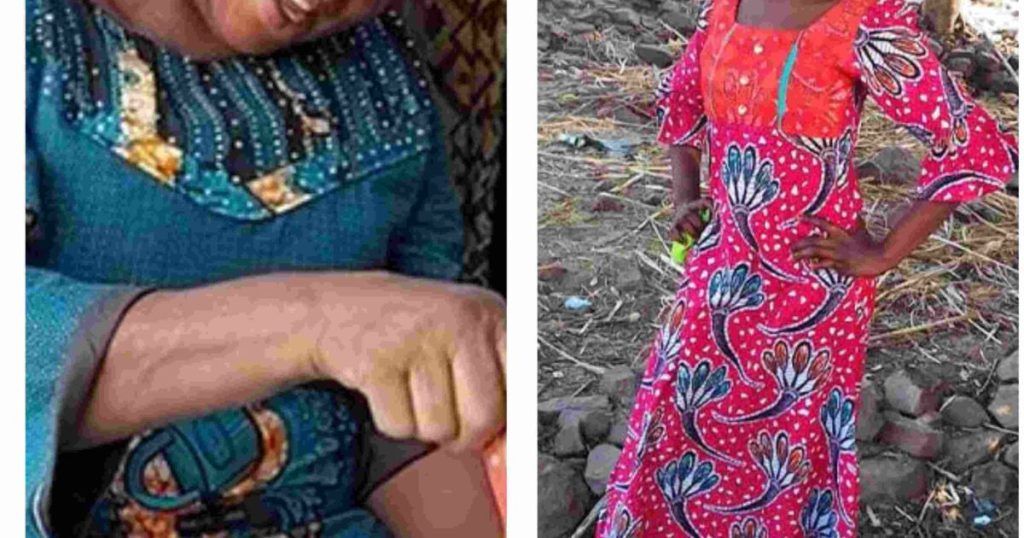Leah Sharibu’s story is a poignant testament to the enduring power of faith amidst unimaginable adversity. Abducted at the tender age of 14 from her school in Dapchi, Nigeria, by the Boko Haram terrorist group, Leah has now spent seven agonizing years in captivity, her 22nd birthday a stark reminder of the stolen years and the unwavering hope for her return. Her mother, Rebecca Sharibu, continues to be a beacon of strength and resilience, her voice echoing the pain of a mother’s heart while simultaneously radiating an unyielding belief in the power of prayer and the eventual reunion with her daughter. Leah’s captivity is a tragic consequence of religious extremism, her refusal to renounce her Christian faith the reason cited for her continued detention.
The abduction of the Dapchi schoolgirls in February 2018 sent shockwaves across the globe, highlighting the vulnerability of young girls in conflict zones and the brutal tactics employed by extremist groups like Boko Haram. While most of the abducted girls were eventually released, Leah’s steadfast adherence to her faith marked her as a symbol of resistance against forced conversions and the suppression of religious freedom. Her story became a rallying cry for human rights organizations, religious leaders, and individuals worldwide who condemned the abduction and demanded her immediate release. The Nigerian government’s efforts to secure her freedom have, unfortunately, remained fruitless, leaving her family and supporters in a state of perpetual anguish.
Rebecca Sharibu’s unwavering faith and determination have been a source of inspiration throughout this ordeal. Her public pleas for her daughter’s release, delivered with both vulnerability and strength, have resonated deeply with people across the world. In a recent video message marking Leah’s 22nd birthday, Rebecca expressed the profound sorrow of celebrating another milestone in her daughter’s life without her presence. Yet, her message was not one of despair, but one of unwavering hope, fueled by her faith and the belief that Leah will one day be reunited with her family. Her call for continued prayers and advocacy for Leah and other captives serves as a powerful reminder of the importance of solidarity and the collective responsibility to fight against injustice.
Leah’s story underscores the broader issue of religious persecution, particularly in regions where extremist ideologies threaten the peaceful coexistence of different faiths. Her captivity serves as a stark reminder of the human cost of religious intolerance and the urgent need for greater interfaith understanding and respect for religious freedom. The international community must continue to exert pressure on governments and organizations to prioritize the protection of religious minorities and to hold perpetrators of religious persecution accountable for their actions. Leah’s case represents a crucial test of the global commitment to defending fundamental human rights and ensuring that individuals are not punished for their beliefs.
The prolonged captivity of Leah Sharibu raises critical questions about the effectiveness of counter-terrorism strategies and the challenges of negotiating with extremist groups. While military interventions are sometimes necessary to combat terrorism, they must be accompanied by comprehensive approaches that address the root causes of extremism, such as poverty, inequality, and marginalization. Furthermore, engaging with local communities and religious leaders is essential to building trust and fostering a climate of tolerance and respect. Negotiation and diplomacy, while complex and often fraught with challenges, can also play a crucial role in securing the release of hostages and achieving peaceful resolutions to conflicts.
As Leah Sharibu marks another birthday in captivity, her story continues to inspire hope and resilience. It is a testament to the enduring power of faith, the strength of the human spirit, and the unwavering love of a mother. The international community must not forget Leah and other victims of religious persecution. Their stories must serve as a constant reminder of the urgent need to protect religious freedom, promote interfaith dialogue, and work towards a world where all individuals can live freely and safely, regardless of their beliefs. The fight for Leah’s freedom is a fight for justice, a fight for human dignity, and a fight for a world where faith is a source of strength and unity, not a cause for persecution and suffering.














